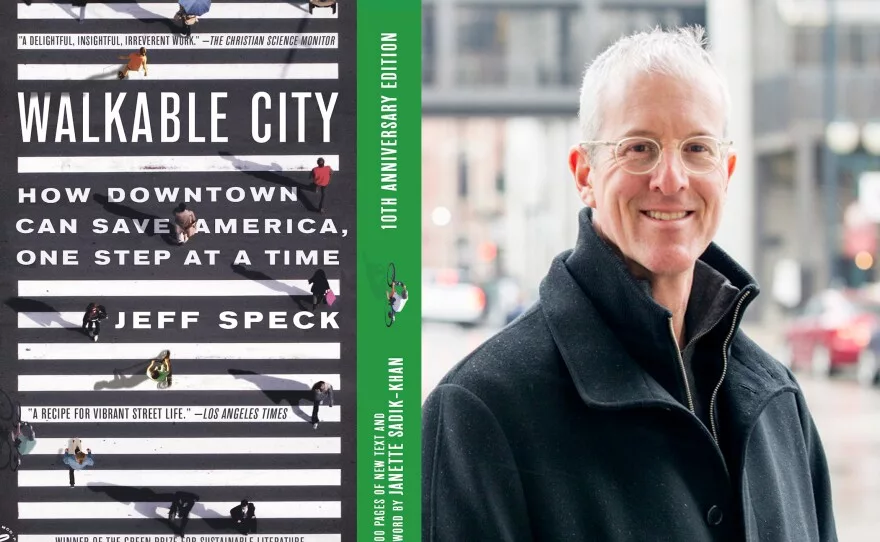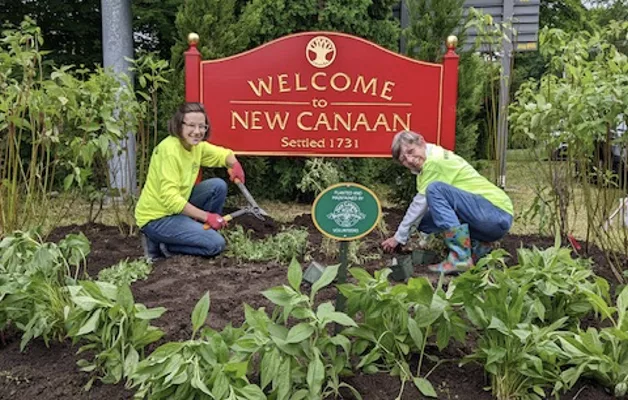
 Jeff Speck, an acclaimed national planning expert and advocate for walkable cities, is set to speak on “Toward a More Walkable New Canaan” on Thurs., Feb. 1.
Jeff Speck, an acclaimed national planning expert and advocate for walkable cities, is set to speak on “Toward a More Walkable New Canaan” on Thurs., Feb. 1.
This event is co-sponsored by a coalition of community organizations, including Planet New Canaan, the New Canaan Conservation Commission, New Canaan Community Foundation, New Canaan Library, the New Canaan Garden Club, New Canaan Land Trust, the Glass House, New Canaan Beautification League, and Grace Farms.
Speck, recognized for his influential work in urban planning and design, will share his insights on how walkability contributes to the vitality of urban environments.
Speck, an award-winning planner and a prolific author, is renowned for his bestselling title “Walkable City” and his co-authored work “Suburban Nation,” which the Wall Street Journal hailed as “the urbanist’s bible.” His expertise and innovative ideas on urban development have been recognized globally, with translations of his work available in eight languages. His impactful TED talks and YouTube videos, viewed over six million times, reflect his significant influence in the field of urban planning.
In a recent interview, he explained his approach: “The cognitive scientist and AI researcher Joscha Bach describes the brain as a monkey riding an elephant: We find ways to rationalize decisions that have already been made by our unconscious. So my expectations are never that high that the proper argument will win. Still, there’s a tremendous pleasure in discovering a proper argument.”
A fellow of both the American Institute of Certified Planners and the Congress for New Urbanism, Speck has been recognized for his contributions to the field, including being named one of the “most influential urbanists of all time” in a recent Planetizen poll. His receipt of the 2022 Seaside Prize, an honor shared with luminaries like Jane Jacobs and Christopher Alexander, underscores his stature in the field.
In his upcoming talk, Speck is expected to explore the multifaceted benefits of walkable cities, encompassing economic, health, and environmental perspectives. He has previously said, “The typical American family now spends one fifth of their income on transportation, a substantial increase from the 1970s.” This economic angle, alongside the health implications of urban design, forms a core part of his argument. “One out of three Americans is obese… This American healthcare crisis is an urban design crisis,” Speck has asserted, emphasizing the role of city planning in public health.
Discussing the resistance to change in urban planning, Speck noted, “When my colleagues and I began all this more than 30 years ago, I had a strong feeling of shouting into the wind. We had confidence in the correctness of our mission but not that it would be embraced.” He highlights his ongoing efforts to reframe the objective from stopping sprawl to providing a walkable lifestyle to more people.
Speck also addresses the often misconceived approach to road design, where the emphasis is on moving traffic quickly rather than safely. He argues for a shift in focus to slowing down traffic to create safer and more livable urban environments. This approach aligns with his advocacy for shared streets and bike lanes, aiming for a balanced mix of transportation modes.
Additionally, Speck is known for his stance on environmental sustainability, often highlighting how urban sprawl contributes significantly to ecological challenges. He advocates for denser, more walkable cities as a solution to environmental degradation, stating, “Denser cities like Manhattan are more sustainable, with residents consuming less gasoline and electricity.”
The New Canaan event promises to provide a comprehensive overview of Speck’s groundbreaking work and thought leadership in urban planning. Attendees, including local officials, community planners, and residents, will gain valuable insights into creating sustainable, healthy, and economically vibrant urban environments.



